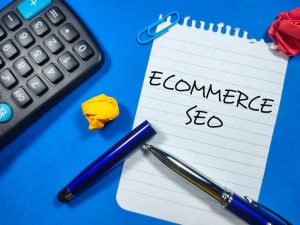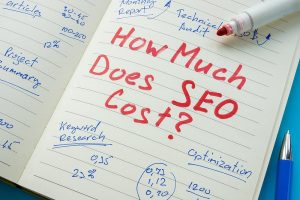Search engine optimization (SEO) and search engine marketing (SEM) are two essential parts of any business that are often confused yet distinctively differently. The main difference between the two strategies is that SEO is an unpaid strategy that focuses on optimizing your website to drive organic traffic from search engines to your website while SEM is a paid strategy that allows you to capture both paid and organic traffic through advertising.
When you combine the two of these strategies together with the right planning and execution, you will have a powerful and successful marketing tool that will bring you visibility, traffic and conversions online.
What is Search Engine Optimization (SEO)?
Search Engine Optimization (SEO) is an essential, cost-effective marketing strategy that is used to drive organic traffic from search engines such as Google or Bing directly to your website. You may recognize this strategy being used by other websites who show up after you type in certain keywords into a Google search. To successfully incorporate SEO into your marketing strategy, you will need to completely optimize your website from both the technical side or back end of your website as well as the front end, which is the content that users will see.
To optimize your website on the technical side, you will need to assess the website’s information to determine its user-friendliness for search engine crawlers who input the information of your website into an index that is collected and analyzed to rank you on their search engine platform accordingly. The technical aspect of SEO should measure metrics including page speed, URLs, meta-descriptions and the overall web design. When working on the front end, or content, of your website, we recommend that you focus on delivering high value content with valuable keywords that will allow your customers and crawlers to understand your site better. This includes information such as text, images, production descriptions and blogs.
When implemented correctly, your SEO strategy will allow your website to rank higher on the search engine platforms which makes it easier to be searched and found by your target audience. Of course, the higher you rank, the more visible your website will become. This means an increase of your brand awareness and more traffic for sales conversions.
What is Search Engine Marketing (SEM)?
Much like SEO, search engine marketing deals with the information that is found on search engine platforms however, this is a paid marketing tool that allows you to increase the visibility of your website on search engine results pages (SERPs) in targeted local areas. For example, when you go to search someone on google, you will usually see an ad at the top of the page that includes any keywords you may have searched.
SEM advertising includes PPC (paid-per-click) ad campaigns with written copy that uses selective keywords. By assessing key performance indicators such as click through rates (CTR) and cost per click (CPC), you can determine how best to apply this strategy for future campaigns. Using paid ads can help you to monitor the traffic and conversions of your campaigns and will guarantee you a spot at the top of users searchers, which increases your visibility and brand recognition.
Benefits of using both SEO and SEM
Much like SEO, SEM relies heavily on the use of valuable keywords and focuses on the traffic that flows to your website. SEO is known as the foundation for a good SEM campaign and allows for search engines to see you as a credible website. For new websites, it may be best to prioritize a paid advertising campaign while SEO rankings increase and become more established. SEO usually takes some time to reveal itself where SEM will become instant, or as soon as you’ve launched your ads. However, it is important to continually optimize the SEO of your website in the meantime even if you are driving through SEM and paid advertising. This is because optimizing your website using valuable keywords from your existing SEO strategy can help to create an effective PPC ad for your SEM campaign.
Both SEO and SEM are essential marketing tools for your website as most users on the internet choose search engines as the first point of call to find the products, services and information they need. Since search engines can take some time to rank your website through your SEO campaign, a SEM campaign can help to overcome this quickly as you won’t be left to compete for organic space and can effectively reach your target audience by showing up at the top of the SERP page.
Which one you should use? SEO / SEM
Ideally, you should use both, but we understand that it may not be possible if you have a limited budget and resources. With the question of whether to use SEO or SEM,we would always recommend that you work on implementing your SEO. Not only does an SEO campaign provide a solid foundation for your SEM if you chose to have a paid advertising campaign in the future, but it gives your website long-lasting results that cost virtually nothing. Research shows that SEO has a larger impact on users than SEM where organic results usually receive a higher percentage of clicks and conversions. SEO looks at improving and optimizing your website as a whole whereas SEM works on targeted ads to bring in conversions. If you are looking solely at sales and clicks, then SEM can achieve this quickly but overall, SEO is what influences success in reaching a broader audience and supporting link building.
Although SEO is the preferred choice as it is reliable and cost effective, it could take some time before you begin to see results. Instead, we recommend that you opt for an SEO strategy that uses SEM together for you to see results much faster. Building your SEO campaign can help you to build trust without spending money while SEM works instantaneously for an immediate impact with targeted ads and allows you to monitor the campaign performance so you may make changes to your campaign for optimal results. Once you have a grasp on both SEO and SEM, your combined strategy should work well together to bring you increased visibility, brand recognition and sales conversions of both organic and paid traffic.
Not sure where to start with your campaign? Talk to our experts about how we can implement your SEO and SEM strategies.






